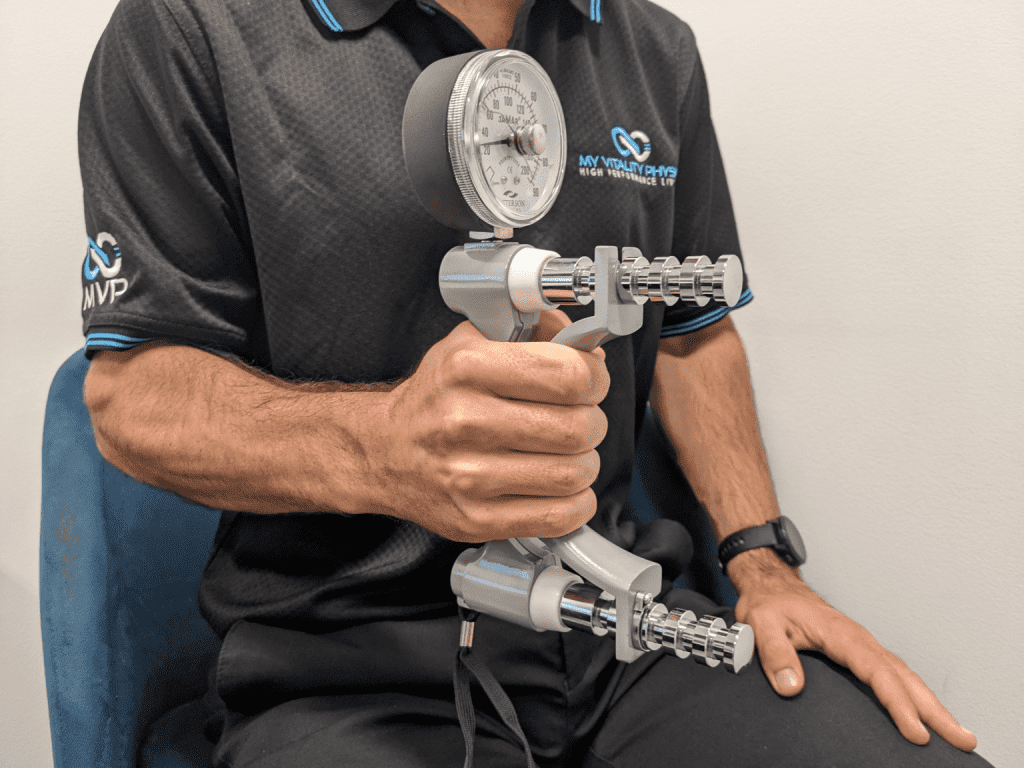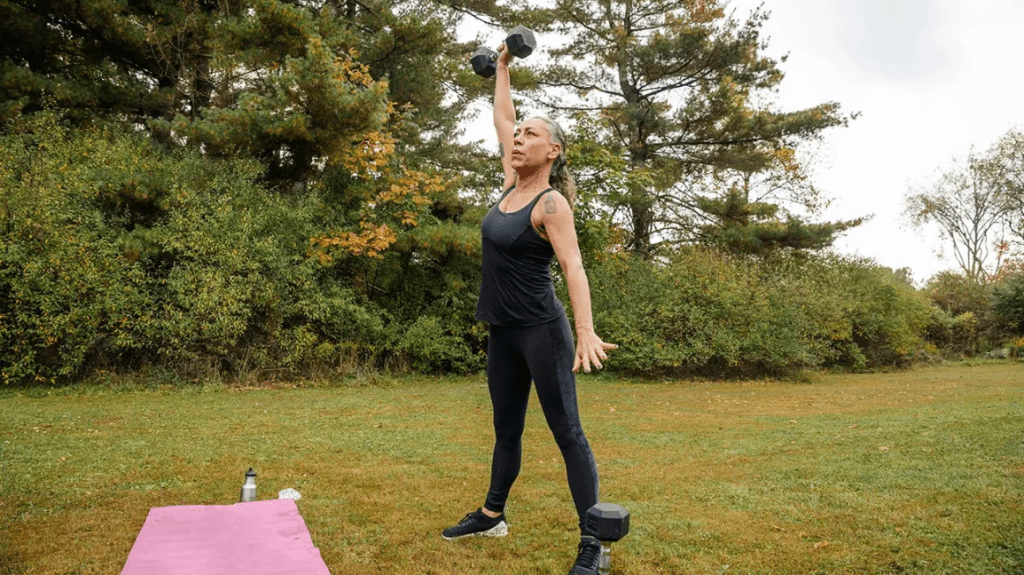Did you know that a quick and easy test you can perform at home might give you a glimpse into your future health and longevity? While the idea of predicting one’s lifespan may not be the most cheerful thought, this test could potentially reveal critical information about your well-being—and all you need is a pair of dumbbells. According to Ed Jones, a nutrition expert and the founder of Nutrition World, this straightforward test might even predict whether you’ll live longer than your peers.
Let’s explore this powerful test, its significance, and why failing it could signal potential health issues down the road.

What Is the Simple Test That Predicts Longevity?
The test in question is all about grip strength. Jones, a firm advocate of holistic health and a member of the American Botanical Council, revealed that grip strength is a significant marker of overall health. In a recent episode of his Nutrition World Podcast, co-hosted by his daughter Cady Kuhlman, Jones discussed a theory he learned from renowned longevity expert Dr. Peter Attia. Dr. Attia, who specializes in helping patients live longer lives through nutrition and exercise, emphasizes the importance of maintaining strength as we age.
Jones stated that this test is often overlooked by healthcare professionals, even though it might hold the key to understanding how long you’ll live.
Why Grip Strength Is So Important
Grip strength may seem like a simple measure of fitness, but it’s much more than that. According to Jones, it serves as a marker for overall body strength, resilience, and health. In fact, grip strength is linked to your heart health, lung capacity, and even the strength of your immune system.
Jones explains, “If you can’t hold a dumbbell that’s 75% of your body weight for one minute, you are more likely to die earlier than someone who can.” He believes that grip strength is a stronger predictor of longevity than common tests like cholesterol levels or blood pressure.
This is because grip strength isn’t just about your hands—it’s an indicator of your entire muscular system’s health. A weak grip could point to weakness in other muscles, which could lead to the deterioration of key systems like the cardiovascular system, respiratory function, and overall physical resilience.
How to Perform the Grip Strength Test at Home
Now that we know the importance of grip strength, let’s walk through how you can test it at home. It’s simple and requires only one piece of equipment: a dumbbell.
Here’s how to do it:
- Grab a dumbbell that weighs about 75% of your body weight.
- For example, if you weigh 160 pounds, you’ll need a dumbbell that weighs around 120 pounds. If that’s too heavy or you don’t have one available, you can scale down and adjust accordingly.
- Hold the dumbbell in one hand, with your arm straight down by your side.
- Set a timer for one minute, and see if you can maintain a firm grip on the dumbbell for the entire duration.
- Switch hands and repeat the test on the other side.
If you can hold the dumbbell without your grip weakening or dropping it for a full minute, you’re in a good position. However, if you struggle to complete the test, it might be a sign that you need to work on building your strength.

The Science Behind Grip Strength and Longevity
Why does grip strength have such a significant impact on overall health and longevity? It’s simple: muscle mass and strength play crucial roles in your body’s ability to function efficiently as you age. Muscle strength supports mobility, protects bones, and maintains balance—key factors that can prevent injuries and promote a longer life.
Several studies back up this theory. Research has found that individuals with stronger grip strength tend to have lower rates of fatal illnesses, including heart disease, pulmonary conditions, and even cancer. A 2015 study published in The Lancet found that decreased grip strength was associated with a higher risk of mortality, regardless of age or other health factors.
Jones points out that the stronger your body is, the better equipped it is to resist disease and age more slowly. “A stronger body means a slower aging process and fewer diseases,” he explained on his podcast.

Why Doctors Aren’t Talking About Grip Strength
Despite the compelling research, grip strength is not something many doctors regularly check during routine exams. Jones argues that this is a missed opportunity, as grip strength can reveal so much about a patient’s overall health.
“Doctors never ask about grip strength,” Jones said. “But it beats cholesterol tests, it beats every other blood test. It’s a marker for how everything else will weaken—your heart, your lungs, every system in your body.”
By failing to assess grip strength, doctors may be overlooking a simple yet powerful indicator of future health issues. Jones hopes that more people will take the initiative to test their own strength at home.
How to Build Your Grip Strength and Improve Longevity
If you’ve tried the test and found that your grip strength isn’t where it needs to be, don’t worry—it’s never too late to start building your strength.

Here are some exercises you can incorporate into your routine to boost your grip strength:
- Deadlifts: This compound exercise works multiple muscle groups, including the forearms, improving grip strength over time.
- Farmer’s Carries: Grab a heavy dumbbell or kettlebell in each hand and walk with them. This exercise forces your hands and arms to maintain a strong grip.
- Hand Grippers: Hand grippers are portable tools designed to help improve grip strength through resistance exercises.
- Pull-Ups: Holding your own body weight while doing pull-ups is an excellent way to enhance both upper body and grip strength.
Building grip strength can improve not only your muscular health but your overall resilience, giving you a better shot at living a longer and healthier life.
Conclusion: A Simple Test with Powerful Implications
Incorporating the grip strength test into your routine is a small yet significant step in understanding your health and longevity. While no test can predict exactly when you’ll die, the link between grip strength and overall health is undeniable. By maintaining or improving your strength, you’re investing in a healthier future.
So, grab those dumbbells and see where you stand. Whether you pass the test or not, it’s a great reminder to focus on your physical strength as a key pillar of living a longer, healthier life.


